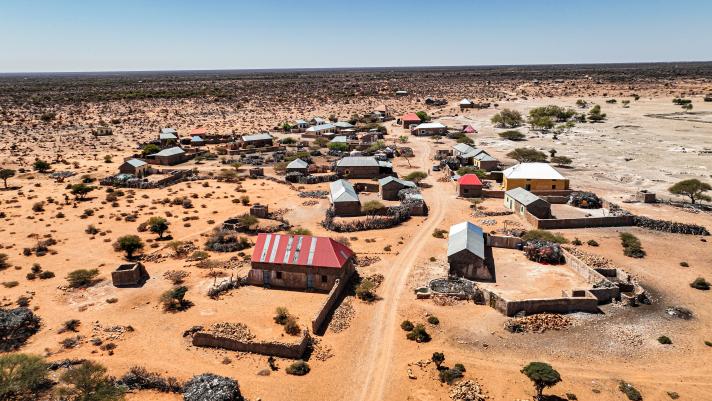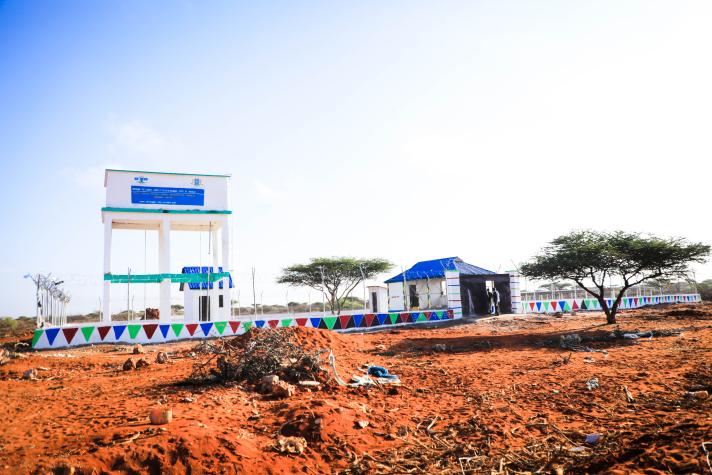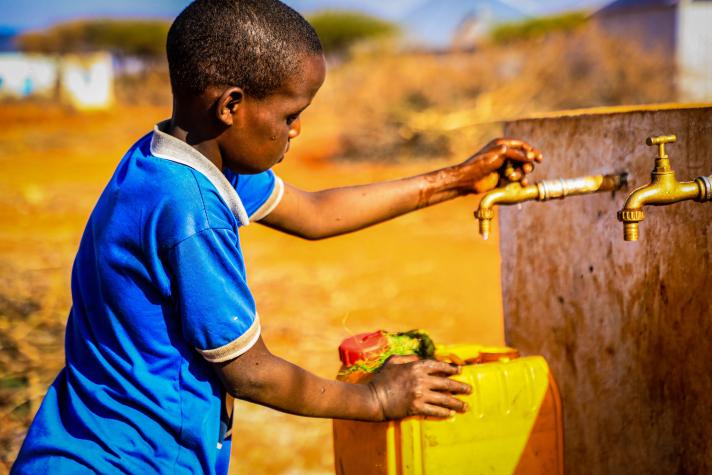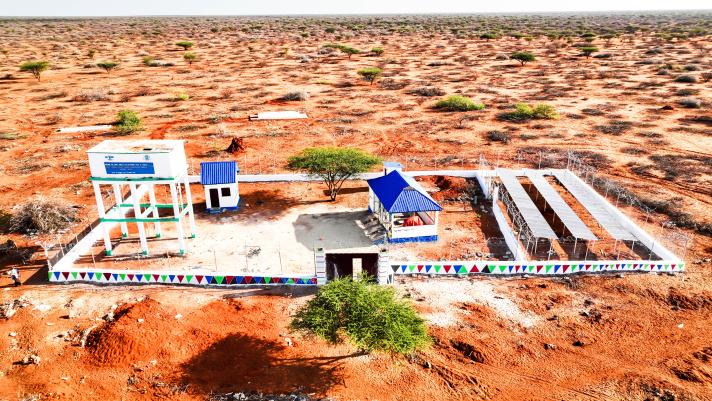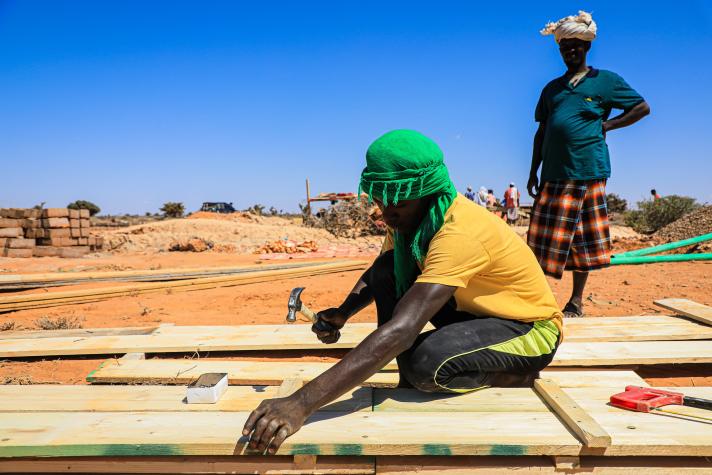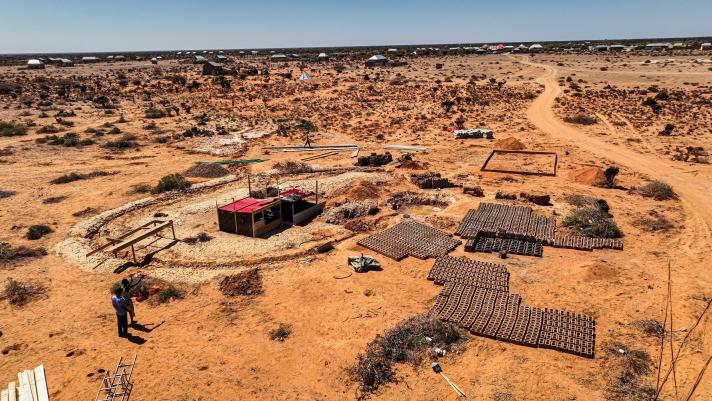27 April 2023
This is one of the causes of exacerbating competition between local clans over grazing land, water, and other natural resources, leading to displacement, recruitment of youth by armed actors, marginalisation of minority groups, and the rise of the extremist organisation al-Shabaab, which cunningly exploits inter-clan grievances to capitalise on climate-induced crises.
In response to this intricate tangle of socio-environmental challanges, an innovative project “Breaking the Climate-Conflict Cycle in Galmudug, Somalia” (Deegaan Bile Galmudug), has emerged as a beacon of hope. Financed by the European Union, this ground-breaking initiative weaves together the unique strengths of three international organisations that implement the project — the International Organization for Migration (IOM), the United Nations Environment Programme (UNEP), and the Stockholm International Peace Research Institute (SIPRI) — to break the climate-conflict cycle and foster a sense of unity among the war-weary communities of Galmudug State of Somalia. The main goal is to reduce environmentally-induced displacement and conflict while supporting communities in adopting climate-conscious conflict mitigation strategies.
Deegaan Bile Galmudug has already made significant progress in achieving its ambitious goals. Through a comprehensive district profiling assessment and the establishment of a Transhumance Tracking Tool, the project has helped communities identify, develop, and reinforce inclusive, climate-sensitive, and environmentally sound natural resource management structures and dispute resolution mechanisms. The project has empowered key actors in natural resource governance, and established women-led water diplomacy committees, which have received training on climate change and conflict mitigation through natural resource management.
The project has constructed two boreholes and rehabilitated three shallow wells, all equipped with solar-powered pumping systems, animal troughs, kiosks, and piping distribution systems for irrigation to support fodder production. Entrepreneurship training and herd restocking have also helped beneficiaries forge pathways to economic recovery and resilience.
In Bilcil, one of the target locations under Deegaan Bile, a communal drip irrigation farm has been established to grow a range of crops selected after a thorough market evaluation. To ensure the sustainability and long-term success of the farm, communities have been trained in best agricultural practices and business development, encompassing a wide range of topics from nursery preparation and crop rotation to harvesting and accessing local markets. The first harvest has been a resounding success.
To further address the devastating environmental hazard of gulley erosion in Somalia, Deegaan Bile plans to construct check dams to prevent further erosion and soil degradation. In Gawan, the project is set to construct 12 soil bunds designed to regulate the flow of water, allowing it to infiltrate the soil, improve fertility, create microhabitats for plant and vegetation growth, and revitalise the rangeland.
This pioneering project, supported by the EU and the combined expertise of IOM, UNEP, and SIPRI, demonstrates that through collaboration, innovation, and a deep understanding of the intricacies of socio-environmental challenges, tangible results can be achieved. By investing in natural resource infrastructure, providing communities with climate change adaptation awareness and skills, increasing access to the labour market, and empowering women to play a larger role in peacebuilding efforts, the project has made a tangible difference in the lives of the people in Galmudug.

